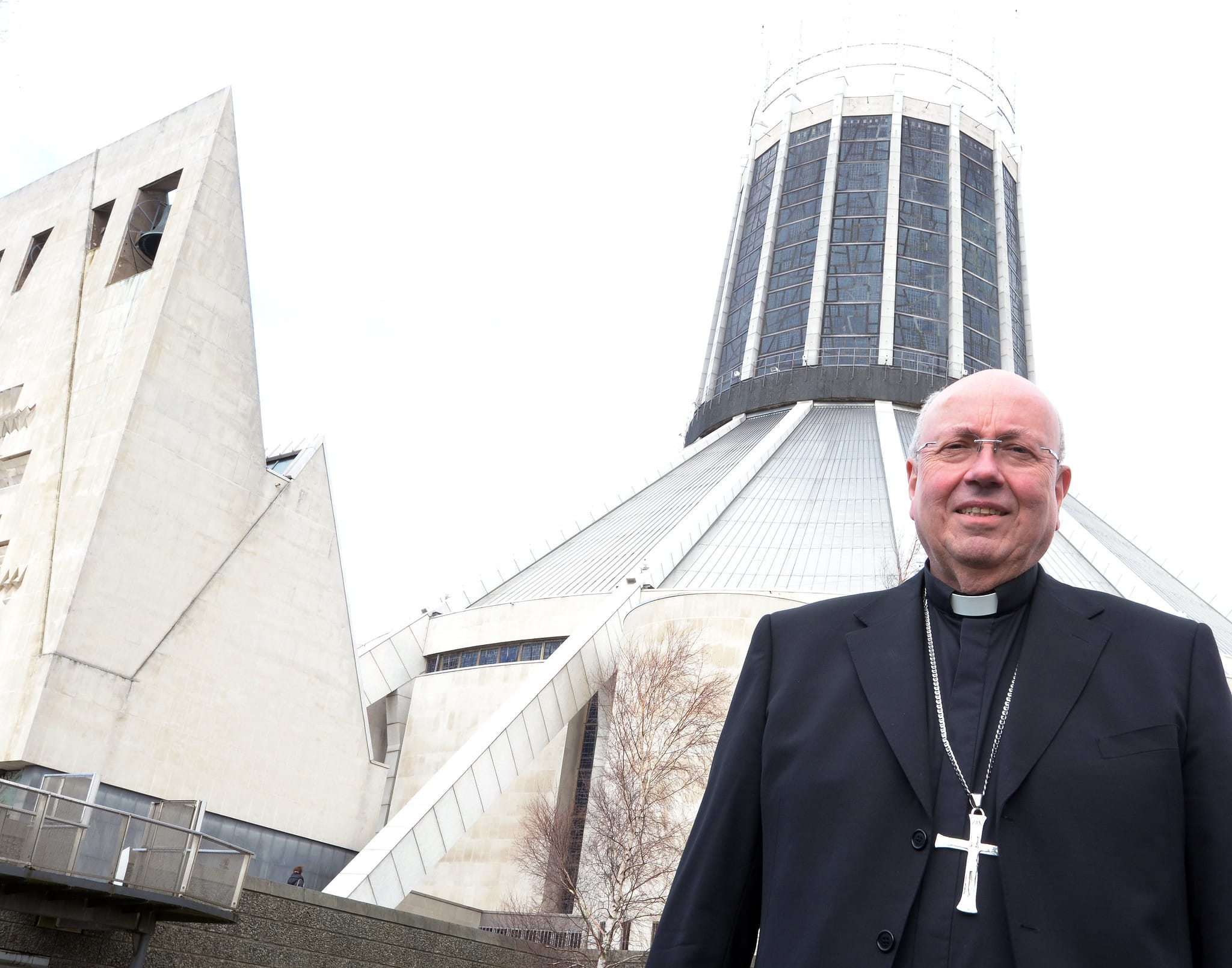The Archbishop of Liverpool has asked every parish in his archdiocese to form groups to study the problem of racism,
<a href="https://www.liverpoolcatholic.org.uk/pastoral-letters/racial-justice-sunday"><mark style="background-color:rgba(0, 0, 0, 0)" class="has-inline-color has-vivid-cyan-blue-color">In a pastoral letter read out in all churches yesterday,</mark></a> the Most Rev. Malcolm McMahon also lamented rising “Islamophobia” and incidents of anti-Semitism.
He said: “I believe we can all make a positive difference by looking into our hearts and carefully examining our attitudes to others and ask forgiveness for the ways in which we have acted in a racist manner.
“We might surprise ourselves as to how often we have behaved in this way.
“I also want to encourage each parish or Family of Parishes to bring together a group of people to examine the topic of racism, both in and outside the Church.
“There are many members of our parishes who have experience of racism, and we all need to hear from them.
“Our aim is to raise awareness of this problem and to find ways of making it a thing of the past.”
He added: “As a sign of our commitment, the archdiocese is developing a range of resources collectively called ‘Welcoming Parishes’. I encourage you to take part in this initiative. It’s time for another change.”
The pastoral letter by Archbishop McMahon, the vice-president of the Bishops’ Conference of England and Wales, was released to mark Racial Justice Sunday.
He urged Catholics to reflect on the ongoing impact of racism in society and within the Church and called on parishes to reflect on whether they address the subject of racism openly or turn a blind eye to it.
The letter asks parishes to consider whether their ministries are representative of their congregations and whether the liturgy reflects the cultures that are present.
He suggested the use of images of St Martin de Porres, St Paul Miki, and St Josephine Bakhita as a means of promoting greater representation.
He also asks Britons to “not forget that our own country benefited from our colonial past, a past many of us are reluctant or ashamed to speak about.”
Historically, partly due to Liverpool’s status as a major port city, there have been large waves of immigration to the area.
The most substantial influx occurred during the Great Irish Famine (1845–1849), when many Irish sought refuge in Liverpool. By 1851, over 20 per cent of the city's population was Irish-born.
The city is home to the oldest Chinese community in Europe, dating back to the early 19th century.
It also has a longstanding black community, tracing its roots back to the 1730s — the oldest in Britain.
Immigrants from the Indian subcontinent arrived in waves throughout the 20th century, though their presence is less significant than in other major urban centres in the UK.
In recent decades, the ethnic makeup of Liverpool has changed considerably, with the non-white population increasing from 4 per cent in 1991 to 16 per cent in 2021.
As of 2019, the archdiocese had approximately 498,360 Catholics, constituting about 27.4 per cent of the total population of 1,819,300 within its jurisdiction.
However, the proportion of Catholics from ethnic minorities is likely to be significantly higher due to immigration from Catholic countries.
The Dominican archbishop acknowledged the changes, noting that in recent years “many asylum seekers and refugees [have been] arriving to escape wars and persecution”.
He also recognised that many of those who have come to serve society in the caring professions face verbal and physical attacks and are made to feel unwelcome.
<em>(Photo courtesy of the Catholic Communications Network)</em>



